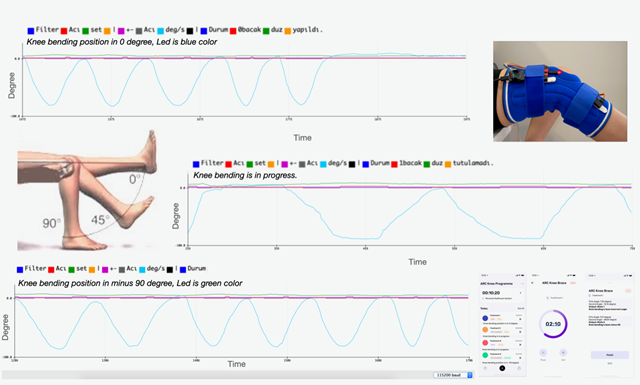The utility model developed by Prof. Dr. Cevza CANDAN, Prof. Dr. Fatma Banu NERGİS and Bilge KOYUNCU has been accepted.
Our faculty members Prof. Dr. Cevza Candan, Prof. Dr. Fatma Banu Nergis and our Innovative Textiles Master's Program student Bilge Koyuncu developed an electronic knee brace (ARC Knee Brace), which provides active movement control, and has been accepted as a utility model by the Turkish Patent and Trademark Office.
Electronic knee clamp with active motion control, created by combining design, technology, and textiles, and in accordance with current conditions in light of technological developments at various scales such as the internet of things, additive and subtractive production, was designed to accompany the treatment processes after disability and to measure and track the user's developmental stages.
The developed and integrated design for knitted knee pads with patella open lateral support, which are prescribed for athletes after knee injuries, will allow users to apply recommended physical therapy movements by correctly managing their own strength without generating external force, and will help strengthen muscle groups around the joint under optimal conditions. It will measure the developmental stages of the improvement in the treatment process and provide data follow-up, and instantly share this information with the user and medical personnel.
Our researchers stated that the primary purpose of them is to obtain objective data if athletes or ordinary individuals can perform the prescribed physical therapy movements for knee injuries in an "active movement controlled" way in their home environment, and to do the movements themselves, to share the necessary user information instantly, and to inform the relevant specialist physicians about the development status of the user.
